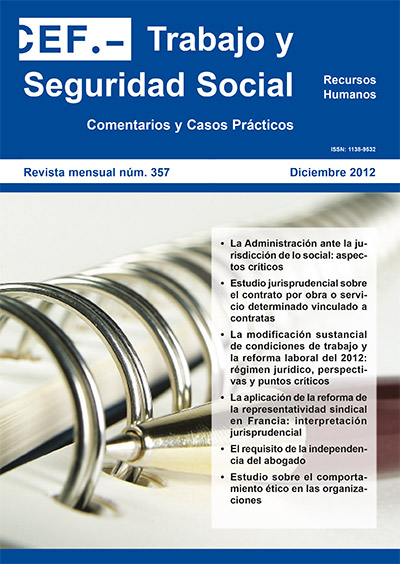The requirement of independence of a lawyer
Comment to the Judgement of the ECJ dated 6 September 2012, in Joined Cases C-422/11 P and C-423/11 P, Prezes Urzędu Komunikacji Elektronicznej
DOI:
https://doi.org/10.51302/rtss.2012.3475Keywords:
lawyers, independence, employment relationship and clientAbstract
The requirement of independence of a lawyer implies that there must be no employment relationship between the lawyer and his client. Is unequivocally linked to the fact that the lawyer in question must not be in a relationship of employment with his client. The concept of the independence of lawyers is determined not only positively, that is by reference to professional ethical obligations, but also negatively, that is to say, by the absence of an employment relationship. The conception of the lawyer’s role in the legal order of the European Union, which is derived from the legal traditions common to the member States, and on which article 19 of the Statute of the Court of Justice is based, is that of collaborating in the administration of justice and of being required to provide, in full independence and in the overriding interests of that cause, such legal assistance as the client needs.


















